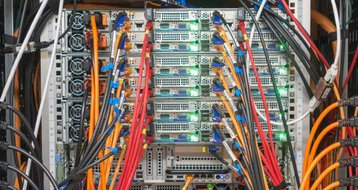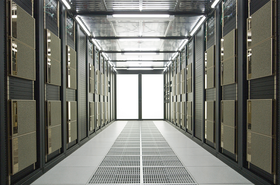Wageningen University & Research (WUR) in the Netherlands has upgraded its Anunna supercomputer.
The upgrade has enabled Anunna to handle more data and optimized the high-performance computing (HPC) system to handle artificial intelligence (AI) applications.
The specifications of the upgrade have not been shared, but it has been enabled by €2.1 million ($2.3m) of investment and has improved the “graphical computing power” of the supercomputer. The new hardware will also be water-cooled, instead of liquid-cooled, to improve energy efficiency. The updated system will be available for use from October 2023.
Prior to the upgrade, Anunna offered 13 Teraflops of computational power made up of 2,000 cores, four Nvidia Tesla V10 GPUs, and one petabyte of parallel storage. The system’s CPUs are Intel Xeon Gold processors.
Alexander van Ittersum, product owner of computer & platform solutions and research IT solutions at WUR, said of the system: “There was no longer enough storage capacity. And we are moving towards updated and more graphical computing power so that AI applications can find a place on the cluster much better.”
Anunna, which was launched in February 2019 at the WUR campus in Wageningen in the province of Gelderland, is used for calculations for climate models, the mapping of genomes in the Animal Breeding and Genomics group of the Animal Sciences, and for environmental research and plant sciences, amongst other applications.
Martien Groenen, head of the Animal Breeding and Genomics chair group, and user of Anunna, said: “We needed a lot of memory back then to map genomes, and so this genome research was soon transferred to the Anunna server. Breeding companies also showed an interest, and they too now store data on the HPC as part of various partnerships. The quantity of terabytes is only increasing, so the expansion is needed. Both computing power and storage space are very essential for the work we do. Of course, you don’t want that storage space in the cloud, particularly if it involves sensitive data.”
An increasing number of AI-optimized supercomputers have been deployed of late. Just last week Scotland's University of Strathclyde deployed an AI supercomputer. Similar deployments or plans have been announced by the South Korean Science Ministry, Brazilian state-controlled oil and gas company Petrobras, and the New York DFS.






